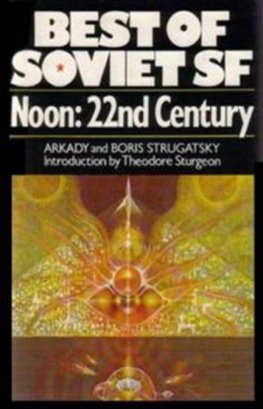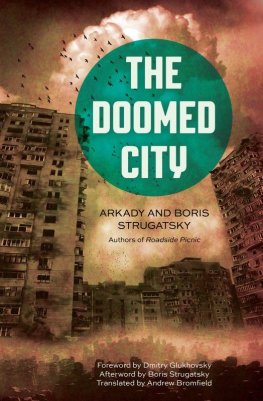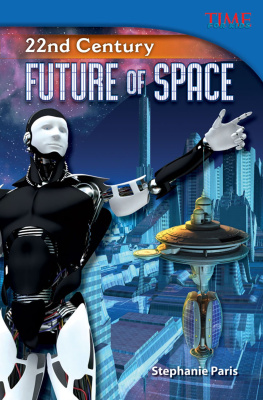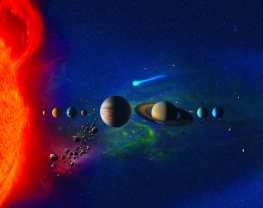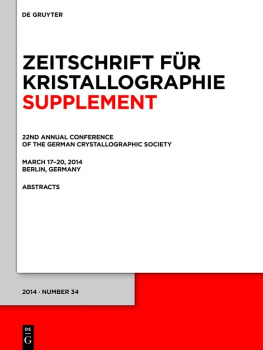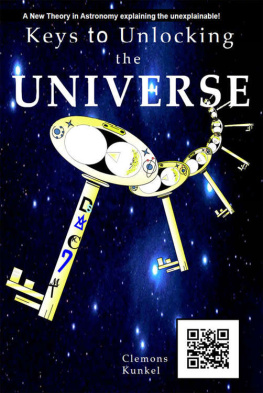Arkady Strugatsky and Boris Strugatsky
NOON: 22nd CENTURY
Translated from the Russian by Patrick L. McGuire
Introduction by Theodore Sturgeon
This great tapestry of interwoven short stories and novelettes was six years in the making. It is full of astonishments, and among the greatest is that the six years involved are 1960 to 1966. Sputnik, an object about the size of a beach ball, had made its tiny but profound mark on human history less than two and a half years before, dying in fifteen weeks. (Willy Ley once remarked that if the earth were the size of Sputnik, it would be smoother, and if the orbit of Sputnik were represented by a wire, you couldnt get a knitting needle under it.) There were few people on earth who understood the full import of this achievement in all its permutations, but among them certainly were the brothers Boris and Arkady Strugatsky.
Doubtless many of their early readers, while slaking a thirst for fantasy, for the wild and improbable, felt underneath that these were excursions into the impossible, and returned from them to a certain and comfortable earthbound reality. Those who lacked this thirstthe majority of readers everywheresurely greeted this literature with jibes and cynicism or dismissed it altogether. It is very likely that these two categories were clearly represented among those who listened to the persuasions of Christopher Columbus at the court of Isabella. It was the general response to Arthur C. Clarkes first articles in technical journals on the subject of communications satellites, and the Wright brothers dreams of aerial commerce.
It would be fascinating and most informative to learn what the reader reaction to these stories was as they appeared, one by oneassuming that they were released as they were written, and then collected. First of all, of course, the Strugatskys would be acknowledged for what they aresuperb storytellers, no matter what they wrote about. The world gives us these masters from time to timede Maupassant, Kipling, Conrad, Tolstoy, Stevenson, Londonwriters who carry the burden of their thoughts on a special kind of golden chariot. Then there is the breathtaking sweep of their imagination; there is no writer alive who can present a more perfect example of that quality possessed only by poetry and by science fiction: the freedom from barriers, from horizons, from limitations of time and space. Further, the Strugatskys, in presenting scene after scene in the near and far future, scenes of gigantic efforts involving hundreds of people, or dozens, or the interactions between one man and his memories, or between a couple, always make the reader aware of a greater whole, always give him glimpses of an undescribed but everpresent surround. When we see a cattle ranch of the future, we see it in terms of a world population and its need for protein as well as the advanced technology by which it is operated, and the feelings and attitudes of the men and women who live with it. When we go with an orbiting D-ship (of which more later) to launch scouts to penetrate and examine the hellish atmosphere of the planet of a blue star, we become aware of what life is like on the ship and on the boats, what the crew members are like, and their pompous commander, and the organization and purpose of the whole-all done in small indicative strokes, understated, believed in. That probably pinpoints the authors mastery of that difficult technicality in storytelling called verisimilitude. Its a way of writing, not so much on the outside looking in, but on the inside looking on. Its writing therethe authors real and living, feeling presence in the scene. Writers who can do that can transmit a mans fear or joy or pride, or the action of a great machine or a hurtling planetoid without having to describe the pictures on the wall or the nuts and bolts or the nature of ballistics.
In reading the Strugatskys (and this is true of their more recent works too) one is struck by their obvious feeling about technology. Steeped in it, imbued with it, preoccupied constantly with the interaction between technology and intelligent beings, the Strugatskys exhibit faith rather than worshipa most intriguing distinction. Let us return to Sputnik to make it.
Science-fiction addicts who wrote and read and dreamed of artificial satellites before October of 1957 were greeted with disbelief and tolerant (or not so tolerant) laughter by the general public which regarded science fiction as updated fairy tales, and who considered themselves matured past the enjoyment of such childishness. Then came Sputnik and in MayMay 1 in 1958, May Dayreporters were stationed on rooftops, camera-equipped, to watch the moon. There was a full moon that night, and the rumor had gotten around that although tiny Sputnik had flamed out months before, the Russians had planned to mark the moon in celebrationperhaps even to stain it red!
Now this is worship: worship of a power beyond comprehension, a power of Old Testament proclivities, capable of beneficence or plagues, unpredictable, omnipotent, impervious (at least to the layman) to research or reason.
The Strugatskys do not worship technology, nor fear it. They use it. Their faith is unshakeable that human capability and human aspiration will devise the tools they need. And in this book, devise them they do. Which brings us to the D-ships.
D stands for detrinitization and it will be of no use to reach for your dictionary; it is not there. (Yet!) It has to do with the technology involved in flinging a ship past the light-barrier, and thereby opening up the possibility of not only interstellar but intergalactic travel. The faster-than-light drive, the space-warp, has been a convention in science fiction for many years, and for imaginations of the magnitude of the Strugaskys and their peers, a necessary one. This planet, this solar system, this one small island of stars, are too confining for them; yet their respect for the realities so far discovered necessitates a rationale for transcending it, and the D-ship is the answer. Once introduced, there is no limit to adventureand for realists like these, no avoiding the price.
A year aboard a D-ship, scouring the cosmos for knowledge, means perhaps a century, or most of one, back on earth. These young adventurers must return to a world in which loved ones have lived, married, and died, as have their children; they come back to a home which is not home, in which much of what they had grown up with is forgottenin which, sometimes, they themselves are forgotten by these grandchildren. We encounter this phenomenon most poignantly in some of these taleshow the returnees find themselves regarding this new humanity as them rather than us, and how difficult it is for them, especially those who for one reason or another may not go out again, to fit in, to find a new job when they have only old skills.
This, of course, is the marrow and the heart of good fiction. Good science fiction must be good fiction, and good fiction cannot be about ideas and inventions, but only about their interaction with people, and the interaction between people. (There are a great many science-fiction writers who seem never to have learned this simple principle.) The Strugatskys never ignore it, and anguish, terror, love, laughter, and loneliness flicker through these narratives like shifting lights. So too do the perennial concerns of all people at one time or another in their lives and growth: What is the meaning of life? What is the purpose? Look at this lovely passage:
First a creature said, I want to eat. He wasnt yet human at that point. But then he said I want to know. Then he was a Human Being There is a law: the aspiration to find out in order to live inevitably turns into the aspiration to live in order to find out.
And this:

